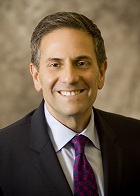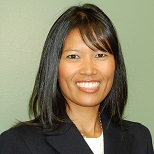This past year was a tumultuous time for healthcare and all of its specialties. From patient engagement and technology to remaining independent, four gastroenterologists discuss what they believe were the top issues for their field in 2014.
Ask a Gastroenterologist is a weekly series of questions posed to GI physicians around the country on business and clinical issues affecting the field of gastroenterology. We invite all gastroenterologists to submit responses.
Next week's question: What should be on every gastroenterologist's New Year's resolutions list?
Please submit responses to Carrie Pallardy at cpallardy@beckershealthcare.com by Friday, December 26, at 3 p.m. CST.
 Elliot Ellis, MD, team lead, EMA Gastroenterology, Modernizing Medicine: As a practicing gastroenterologist, I make it a goal to not only provide accurate and excellent patient care, but to also maintain patient engagement. Having that patient-to-physician relationship is critical for treating your patients as you need them to understand what you're saying and to ultimately trust you. A known roadblock to maintaining your relationships with patients is electronic medical record systems. Today, many physicians carry around large laptops and during the session with patients are constantly typing and focusing on the screen rather than on the patient. This can not only lessen patient interaction, but also impact the human aspect of being a physician. For gastroenterologists, it's crucial that your patient feels comfortable during his/her consultation, and with some EMR systems it's practically impossible to maintain eye contact when speaking directly with the patient.
Elliot Ellis, MD, team lead, EMA Gastroenterology, Modernizing Medicine: As a practicing gastroenterologist, I make it a goal to not only provide accurate and excellent patient care, but to also maintain patient engagement. Having that patient-to-physician relationship is critical for treating your patients as you need them to understand what you're saying and to ultimately trust you. A known roadblock to maintaining your relationships with patients is electronic medical record systems. Today, many physicians carry around large laptops and during the session with patients are constantly typing and focusing on the screen rather than on the patient. This can not only lessen patient interaction, but also impact the human aspect of being a physician. For gastroenterologists, it's crucial that your patient feels comfortable during his/her consultation, and with some EMR systems it's practically impossible to maintain eye contact when speaking directly with the patient.
I recently implemented a new iPad native system designed specifically for gastroenterologists. The system has many qualities I prefer over paper or other EMRs, however, one of my favorite enhancements is its ability to improve both patient care and experience. Because it's on the iPad it's extremely portable and non-intrusive. It's an interactive system that naturally guides your discussion with patients versus simply asking questions and getting answers. Now, I'm able to maintain eye contact constantly throughout the consultation and the system moves with me; it knows gastroenterologists' workflow. The built-in medical content prompts intelligent questions to ask, as well as to consider all diagnoses and differential diagnoses. Patient engagement has actually shot through the roof, which is a huge win in today's healthcare industry.
The future of healthcare and technology and how it has the ability to vastly improve the process by which we diagnosis and treat patients is extremely positive. From discussions with colleagues, I know complicated systems and paper methods aren't working for physicians any longer and we need a better solution. Luckily, my practice has found its solution and I'm looking forward to what it will bring headed into 2015.
Scott R. Ketover, MD, AGAF, President and Chairman of the Board, Digestive Health Physicians Association, President,  CEO, Minnesota Gastroenterology (Plymouth): One of the biggest gastroenterology stories of 2014 is the creation of a new voice for independent gastroenterology practices.
CEO, Minnesota Gastroenterology (Plymouth): One of the biggest gastroenterology stories of 2014 is the creation of a new voice for independent gastroenterology practices.
This February, 11 GI practices from across the country formed the Digestive Health Physicians Association (DHPA), a trade association whose mission is to promote the high quality, cost-efficient and integrated care furnished by independent gastroenterology practices. As 2014 comes to a close, DHPA has grown to 39 practices in 23 states whose more than 1,000 physicians care for nearly 2 million patients each year.
As impressive as the growth has been, it's DHPA's out-of-the-gate action that makes the organization worthy of a "top-story" moniker in 2014. DHPA, working as a complement to the tri-societies, was part of a team effort in defending colonoscopy payments from significant cuts that had been anticipated and in supporting CMS's change in the definition of colorectal cancer screening test to include anesthesia that is furnished in conjunction with screening colonoscopies.
On the legislative front, DHPA recognized a serious threat in California to the integrated model of care delivered by independent medical practices and came to the support of GI and other physician specialty practices to defeat a state Senate bill that, if passed, would have eliminated protection for in-office anatomic pathology, advanced imaging, radiation therapy and physical therapy services in California.
On Capitol Hill, physicians from the member practices introduced themselves to lawmakers and added our voice to the growing chorus of physicians educating policymakers as to why the in-office ancillary services exception (IOASE) to the federal Stark Law is essential to safeguarding high quality, affordable care in the physician office setting. Our policy position to preserve the IOASE is supported by 32 physician specialty organizations and the American Medical Association. Beyond the specific support to preserve the IOASE, a growing body of data demonstrates the importance of protecting care delivered in physician offices and independent ASCs as an alternative to care that is typically more costly in the hospital setting.
In its inaugural year, DHPA set out to complement the great work that the tri-societies do on behalf of gastroenterologists, while offering something new — an organization that focuses laser-like on the challenges and opportunities facing gastroenterologists who care for patients in independent practices. I'm proud that in our first 10 months of existence we have created a voice for independent gastroenterology practices that promotes the high quality, cost-efficient care that physicians in DHPA member practices furnish to millions of patients across the country.
 Julie Servoss, MD, MPH, medical director, EMA Gastroenterology, Modernizing Medicine: One of the most important topics of discussion this year (and will be for next year) is focused on ICD-10 and the continuous implementation delays that came to an end on December 11. Congress rejected yet another effort to delay the ICD-10 deadline of October 1, 2015. The approaching deadline means that gastroenterologists must have a mechanism in place to begin using ICD-10 codes, however, many electronic medical records systems in the market now may not be ICD-10 ready. In addition, what's available now may utilize crosswalks that have a high error rate, resulting in delayed and/or decreased reimbursement for physicians and healthcare organizations. Fortunately, solutions designed specifically for gastroenterologists were introduced this year with fully automated ICD-10 coding algorithms. ICD-10 is quite daunting and the ability to tackle it with technology to completely automate the transition is huge in terms of both compliance and the ability to capitalize on the more granular codes and subsequent data.
Julie Servoss, MD, MPH, medical director, EMA Gastroenterology, Modernizing Medicine: One of the most important topics of discussion this year (and will be for next year) is focused on ICD-10 and the continuous implementation delays that came to an end on December 11. Congress rejected yet another effort to delay the ICD-10 deadline of October 1, 2015. The approaching deadline means that gastroenterologists must have a mechanism in place to begin using ICD-10 codes, however, many electronic medical records systems in the market now may not be ICD-10 ready. In addition, what's available now may utilize crosswalks that have a high error rate, resulting in delayed and/or decreased reimbursement for physicians and healthcare organizations. Fortunately, solutions designed specifically for gastroenterologists were introduced this year with fully automated ICD-10 coding algorithms. ICD-10 is quite daunting and the ability to tackle it with technology to completely automate the transition is huge in terms of both compliance and the ability to capitalize on the more granular codes and subsequent data.
ICD-10 is a much more precise system for accessing quality of care and tracking diagnoses for diseases, signs and symptoms and external causes of diseases. With these enhancements comes more specificity within certain specialties, such as gastroenterology. For physicians, ICD-10 will be loaded with more symptoms, diseases and treatments pertaining to the gastroenterology field. The technology I have been discussing and using not only has ICD-10 implemented, but also provides a sophisticated and easy-to-use platform for physicians to accurately diagnosis and determine treatment for their patients.
It will be interesting to see how the ICD-10 implementation unfolds in 2015.
 Karen Simon, MD, Ventura County Gastroenterology (Camarillo, Calif.): One of the most significant advancements in the field of gastroenterology in 2014 is the FDA approval of Cologuard, a non-invasive stool DNA screening test for colorectal cancer. Cologuard is the first FDA-approved colon cancer test that analyzes both DNA and blood biomarkers in the stool and it is highly accurate. A New England Journal of Medicine study found that Cologuard detected 92 percent of colorectal cancer in average risk patients, with 87 percent specificity. Cologuard is prescribed by a physician and sent directly to a patient's home, where they collect a stool sample and then ship it back to the lab via UPS. The test is also now covered by Medicare.
Karen Simon, MD, Ventura County Gastroenterology (Camarillo, Calif.): One of the most significant advancements in the field of gastroenterology in 2014 is the FDA approval of Cologuard, a non-invasive stool DNA screening test for colorectal cancer. Cologuard is the first FDA-approved colon cancer test that analyzes both DNA and blood biomarkers in the stool and it is highly accurate. A New England Journal of Medicine study found that Cologuard detected 92 percent of colorectal cancer in average risk patients, with 87 percent specificity. Cologuard is prescribed by a physician and sent directly to a patient's home, where they collect a stool sample and then ship it back to the lab via UPS. The test is also now covered by Medicare.
While colonoscopy remains the gold standard in screening, the best test is the one that gets it done, and with many patients still not getting screened as recommended, Cologuard is a welcome new tool to our arsenal of screening options. Noninvasive options like Cologuard that don't require dietary restrictions or bowel prep could contribute to increased compliance with colon cancer screening and help us reach our goal of getting 80 percent of eligible patients screened for colorectal cancer by 2018.

